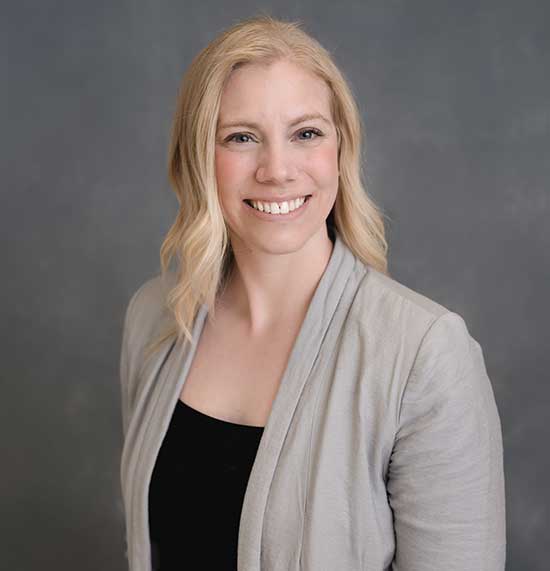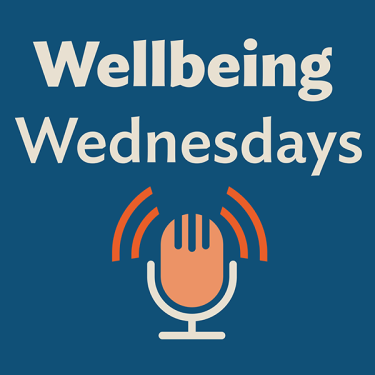The journey to recovery for pregnant and postpartum women experiencing substance use disorders (SUDs) is often complicated by stigma, fear and fragmented care systems. Many expectant mothers delay or avoid critical prenatal care and treatment due to negative experiences with health care providers in the past and the pervasive fear of judgment. Too often, mothers with SUDs are reduced to their diagnosis — their identity as mothers overshadowed by stigma and misconception.
Through conversations with three experts, we uncover what mothers truly need to hear, the misconceptions that create barriers to care and the best practices that can make a meaningful difference in supporting long-term recovery.
At its heart, this conversation is about seeing the whole person, not just as a patient with a disorder, but as a mother doing her best to navigate the challenging terrain of recovery while raising children. It’s about creating spaces where trust can flourish, where trauma-informed approaches and hope-centered practices replace judgment, and where mothers feel empowered rather than diminished.
Join us as we explore how providers can move beyond stigma to deliver care that truly meets mothers where they are.

Ariel Britt, MSW, Dear Jude Media
Britt is passionate about community empowerment through education and speaking. Her career has spanned recovery support services, community organizing and program development. In 2021, she served as a political appointee to the White House Office of National Drug Control Policy, elevating her community support efforts to a national platform. Now living in Michigan, Britt’s most important role is being a mother to her son, Jude. Her journey through motherhood has inspired her to further amplify her message of compassion, visibility and resilience.
Q: What do mothers with SUDs need to hear from providers?
Mothers with SUDs need to know someone truly sees them — not just as patients, not just as “a person with a disorder,” but as mothers, and as women doing their best to navigate recovery, parenting and all the ups and downs that come with both. They need to hear “I’ve got your back. I see the full picture. I care about you.” That kind of trust isn’t built in a single appointment. It takes honest conversations, consistent check-ins and relationships that recognize the hard parts and the joy — mothers’ love for their kids, their hopes and the effort they’re putting in every day. Providers need to meet them where they are, walk alongside them and remind them they’re not alone in this.
Q: What is a common misconception providers have when working with mothers with SUDs, and what tangible steps can they take to better understand and support their needs?
One of the biggest misconceptions is that SUD somehow overrides their identity as a mother, that the disorder is the headline and everything else takes a back seat. But it doesn’t work that way. Mothers are more than their diagnosis. They are complex, resilient and often carrying a weight most people don’t see. Here’s something providers can do: Listen for what’s not being said. Notice the isolation, the pressure, the quiet moments where stigma tries to silence their experiences. I remember how isolating it felt when I first became a mom — those early days can feel lonely even without SUD in the picture. Add recovery to the mix, and that isolation can feel overwhelming. Providers should take time to understand not just the recovery journey, but the parenting journey too. Both matter. Both deserve empathy.

Brittany Jones, MA, LCAS, CCS, CD(DONA), PMH-C, Melanated Bellies Birth Support LLC
Jones is a DONA International-certified birth doula and trained postpartum doula with a strong academic foundation in psychology. She has over seven years of experience working in the mental health field, ranging from clinician to consultant. She is a champion of both health and mental health and focuses on self-advocacy and shared decision-making when working in the birth space.
Q: What are the best practices offered to postpartum individuals to support their long-term recovery?
Supporting postpartum individuals in long-term recovery from SUDs requires a holistic, trauma-informed and family-centered approach. Recovery doesn’t stop at delivery — if anything, the postpartum period is when support becomes most critical, due to the emotional, hormonal and life changes that follow birth. Continued access to medication assisted treatment, as well as peer support services, postpartum doula care, integrated family-centered care and trauma-informed care, can help postpartum individuals in their long-term recovery. Postpartum doula care is often not prioritized or accessible from a financial standpoint to all communities, but expanding those supports could make a long-term impact for a person in postpartum.
Q: How can providers deliver trauma-informed treatment to pregnant and postpartum individuals?
Delivering trauma-informed treatment to pregnant and postpartum individuals — especially those with SUDs or other vulnerabilities — requires an intentional, respectful and holistic approach. Trauma-informed care recognizes that past trauma can deeply impact perinatal experiences and recovery. Incorporating practices such as creating emotional and physical safety — asking “Is it OK to touch your belly” during an exam, explaining what a procedure entails beforehand and empowering individuals through choice and collaboration — and letting patients be the drivers in the decisions about their care can assist in delivering trauma-informed care. Another point is being mindful of the language used when interacting with these patients. How you speak to a client and the words you use really make a difference, like using trauma-informed language and not using words like “addict” or “junkie” to refer to patients with SUD. Also, recognizing when something may be triggering someone and responding with sensitivity. For example, birthing can be a huge trigger for those who have been raped, let alone someone who may be birthing as a result of a rape. It’s important to recognize this and allow for trauma-informed responses and care for those who may have that history.

Kalli Jacquay, MSOL, Logan Health
Jacquay is a certified community health worker and maternal care coordinator at Logan Health in Kalispell, Montana, with a strong academic background in psychology and organizational leadership. She has extensive experience supporting families through home visiting, case management and child protective services. Through the Meadowlark Initiative, she connects pregnant women and families with essential resources while advocating for perinatal mental health and early childhood education. When not supporting families professionally, Jacquay enjoys time with her husband and three children in Montana’s beautiful Flathead Valley.
Q: What do mothers with SUDs need to hear from providers?
I feel like moms need to hear that they are more than their substance use and that they will be cared for no matter what their use history or current status is — without judgment. I think it is important for moms to know that their SUD could pose some complications in pregnancy that should be monitored, but they should be educated about what those recommendations are and why monitoring is needed, whether it be from the medical team or the social work/care coordination team. Also, I think it is important to help moms and their natural supports know where to go to access additional support in the community that might be helpful in their pregnancy and their recovery. I believe that wraparound care (medical, community and family/friends) is vital to all women experiencing pregnancy, with an additional focus on those who are at highest risk for additional complications due to mental health or substance use disorders.
Q: What is a common misconception providers have when working with mothers with SUDs, and what tangible step can providers take to better understand and support their needs?
I think a common misconception is that mothers with SUDs are not choosing what is best for themselves, so they cannot choose what is best for their baby. This way of thinking is a huge contributor to the stigma around SUD and can prevent many mothers from reaching out for support and attending regular prenatal visits. I think one of the most important things that providers and medical teams can do is listen to a patient’s story and help understand what brought them to where they are in life today and how we can truly help moving forward. Every mother needs support in a different way, and a lot of conversations should be centered on what supports are available and how we can help moms engage in those desired supports in a way that feels safe and helpful, not just another “thing” they have to do to fulfill a care plan.
By embracing a holistic, trauma-informed approach that honors both the recovery journey and the parenting experience, providers can become powerful partners for mothers with SUDs. Learn more ways to support those with SUDs at StartWithHope.com.




